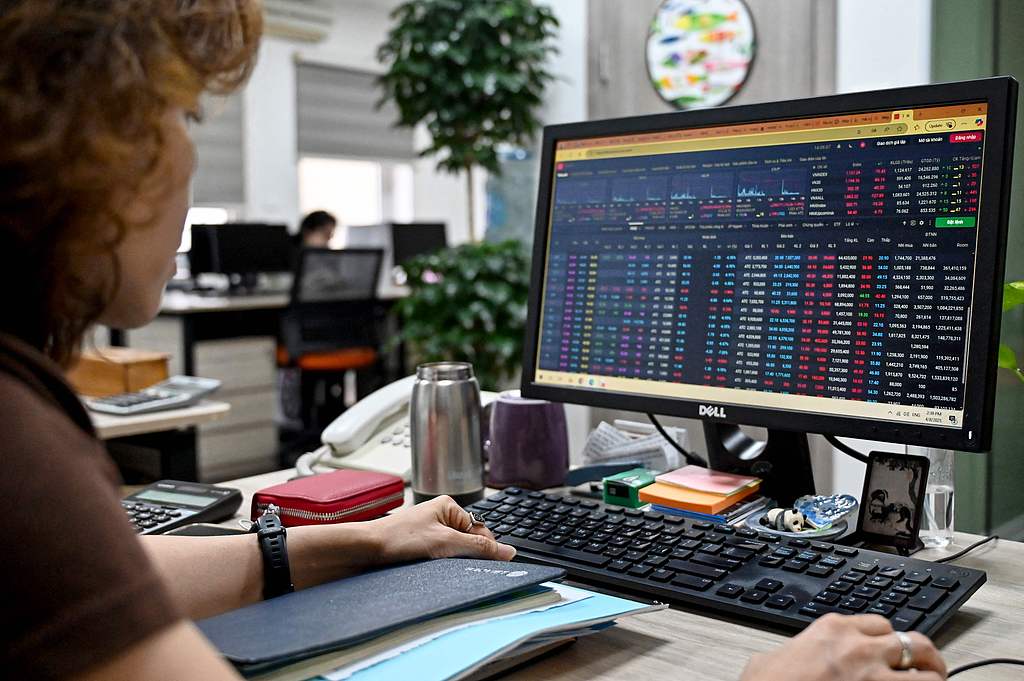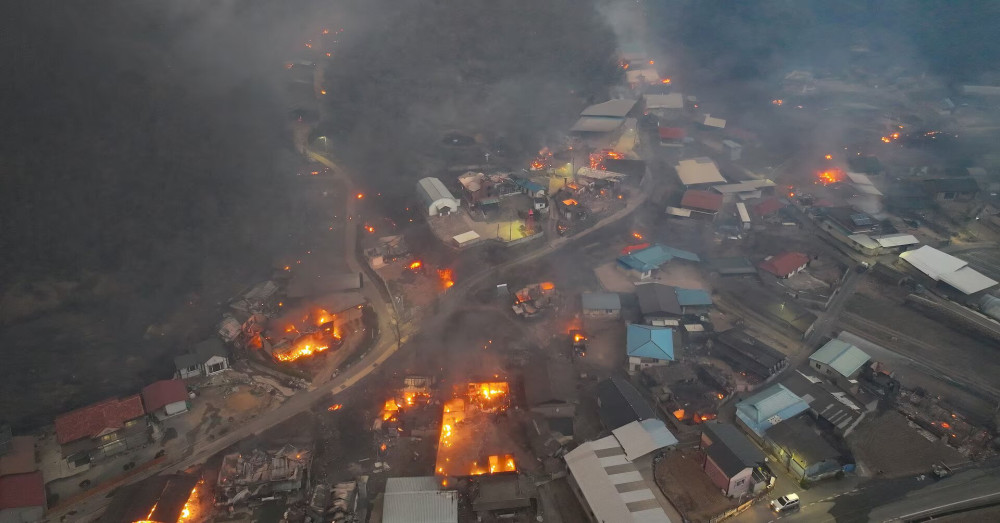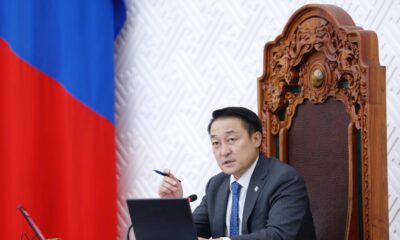Дэлхий дахинд
Хятадад төрөлт буурсаар байгаа тул үр хөндөхийг хориглолоо

Хятадад хүүхэд төрүүлэх явдал эрчимтэй буурсаар байгааг зогсоохын тулд БНХАУ-ын Эрүүлийг хамгаалах үндэсний комиссоос үр хөндөхийг хориглож байгаагаа зарласан байна. Харин хүний эрхийг хамгаалагч идэвхтнүүд үр хөндөхийг ингэж хориглох нь сая сая эмэгтэйн эрүүл мэндэд хохирол учруулна гэж үзэж байна.
БНХАУ сүүлийн хэдэн арван жилд хүн амын хэт өсөлтийг хязгаарлах бодлого барьж байсан бол өнөөдөр төрөлт хамгийн доод түвшинд хүрээд байгаа юм. Хүн ам нь бүхэлдээ хөгширч байгаагаас эрх баригчид энэ явцыг өөрчлөхийн тулд шийдвэртэй арга хэмжээ авахаар шийдээд байна.
Үр хөндөлтийг хориглох шийдвэр ч гэсэн эрүүл мэндийн салбарын эрх баригчдын хэлж байгаагаар бол зөвхөн эмнэлгийн магадлагаа, зөвшөөрөлтэй тохиолдолд л үр хөндөхийг зөвшөөрөх юм байна. Үүний зэрэгцээ эхчүүдэд үзүүлэх нийгмийн тусламж дэмжлэгийг нэмэгдүүлэх, үргүйдлийг эмчлэх талаар илүүтэй ажиллана гэнэ.
Төсөөллөөр энэ онд Хятадад төрөлт хамгийн дээд хэмжээгээр буурч, 10 сая хүрэхгүй хүүхэд мэндэлсэн тоо гарахаар байгаа нь өмнөх жилийн дүнгээс 11,5 хувь бага байна.
Эрүүл мэндийн судалгааны Гутмахерын хүрээлэнгийн мэдээлж байгаагаар бол БНХАУ нь өнөөг хүртэл үр хөндөлтөөрөө дэлхийн тэргүүлэгч орон байсаар ирсэн байна. Тус хүрээлэнгийн мэдээнд БНХАУ-д төлөвлөгөөгүй жирэмслэлтийн 78 хувийг үр хөндөлтөөр зогсоодог гэжээ. Энэ үзүүлэлт дэлхийд 61 хувь байдаг юм байна.
Хятадын эрх баригчдын мэдээлснээр бол 2015-2019 онд БНХАУ-д жил дунджаар 9,5 сая үр эмэгтэй үр хөндүүлдэг байжээ. Гутмахерын хүрээлэн болохоор энэ хугацаанд жил бүр 17,7 сая эмэгтэй үр хөндүүлж байсан гэж байна.
Хятадын хүн ам зүйд тулгараад байгаа бас нэг асуудал бол жендерийн харьцаа. Өнгөрсөн оны мэдээллээс үзэхэд тус улсад эрчүүд нь эмэгтэйчүүдээсээ 37 саяар илүү байна.
Нөгөө нэг зүйл нь төрөлт ийн буурснаар тус улсын хүн ам хөгширч ажиллах хүчний хомсдолд орохоос гадна нөхөн үржихүй зогсоход хүрч мэдэх аюул байна. НҮБ-ын Эдийн засаг, нийгмийн газрын мэдээллээр бол БНХАУ-ын хүн ам 2025 оноос эхлээд буурч эхлэх төлөвтэй байна. НҮБ-ын тооцоолж байгаагаар бол 2023 он гэхэд Энэтхэг улс хүн амын тоогоороо Хятадыг гүйцэж түрүүлэн манай гаргийн хамгийн олон хүнтэй улс болох гэнэ.
БНХАУ-д 1980-2015 он хүртэл БНХАУ-д “Нэг гэр бүр-нэг хүүхэд” гэсэн бодлого хэрэгжиж ирсэн юм. Харин 2016 оноос төрөлтийг дэмжих зорилгоор гэр бүлийг хоёр хүүхэдтэй байхыг зөвшөөрсөн бол дахиад таван жилийн дараа нэг гэр бүлд гурван хүүхэдтэй байхыг зөвшөөрөөд байгаа юм.

Дэлхий дахинд
Ромын пап Францисыг оршуулах ёслол бямба гарагт болно

Ромын католик сүм хийдийн кардиналууд өчигдөр хуралдаж, пап Францисын оршуулах ёслолыг энэ бямба гарагт Гэгээн Петрийн талбайд гадаа үйлдэхээр тогтжээ. Харин ард иргэд, сүсэгтнүүдийг Ромын Папд хүндэтгэлээ илэрхийлэх боломжийг олгох үүднээс лхагва гарагт шарилыг нь Гэгээн Петрийн сүмд байрлуулж юм байна.
88 настай Пап лам Францис тархинд нь цус харвасны улмаас зүрхний дутагдалд орж нас нөгчсөн болохыг Ватиканы албаныхан үүний өмнө мэдээлсэн. Он гарснаас хойш хоёр уушгиндаа хатгалгаа туссаны улмаас эмчлүүлж эмнэлгээс гараад удаагүй байсан Ромын пап хамгийн сүүлд өнгөрсөн амралтын өдөр Улаан өндөгний баярыг тохиолдуулж Гэгээн Петрийн талбайд сүсэгтэн олонтой мэндчилж байсан юм. Францис ламтан мөн тогтсон заншлаас гажиж, Гэгээн Петрийн сүмд бус, Гэгээн Мариагийн сүмд өөрийг нь оршуулахыг гэрээсэлжээ. Өмнөх бүх Ромын папуудаас анх удаа Европын бус орны гаралтай Францис ламтны дурсгалыг хүндэтгэж төрөлх Аргентин улсад нь болон хөрш Бразил улсад 7 хоногийн гашуудал зарласан байна.Мөн дэлхийн католик шашинтнуудын тэргүүнийг оршуулах ёслолд оролцож, Пап Францистай салах ёс гүйцэтгэх бодолтой байгаагаа дэлхийн олон орны удирдагчид илэрхийлж байгаа юм байна.
АНУ-ын Ерөнхийлөгч Д.Трамп тухайлбал гэргийн хамтаар Ром хотноо энэ ёслолд оролцохоо мэдэгдсэнээр албандаа орсноосоо хойш анх удаа хилийн дээс алхах гэж байгааг хэвлэлүүд дурьдаж байна. Францын Ерөнхийлөгч Э.Макрон, Бразилийн ерөнхийлөгч Лула да Сильва, Пап ламтны төрөлх Аргентин улсын ерөнхийлөгч Хавьер Милей нар мөн оршуулгад оролцохоо мэдэгджээ. Украины ерөнхийлөгч Зеленский очихоор төлөвлөж байгаа талаар дотоодын хэвлэлүүд нь мэдээлжээ.
Дэлхийн 1,4 тэрбум католик шашинтнуудын тэргүүн, дараагийн Пап ламыг сонгох сонгуулийн тухайд, түүнийг таалал төгссөнөөс 15-20 хоногийн дараа эхэлдэг жаягтай. Энэ үүднээсээ тавдугаар сарын 6-наас хойш болох юм байна. Маш чанд хатуу дэг ёсны дагуу, нууц байдалд явагддаг энэ сонгуульд дэлхийн өнцөг булан бүрийн 135 кардинал оролцох эрхтэй байна.
Дэлхий дахинд
The U.S. tariff tantrum: A self-defeating trade war

Editor’s note: Xin Ping is a commentator on international affairs, writing regularly for Xinhua News Agency, CGTN, Global Times, China Daily, etc. The article reflects the author’s views and not necessarily those of CGTN.
Washington’s latest tariff blitzkrieg – slapping “universal” levies on over 180 nations and regions – is setting things on fire at home.
The moment the executive order was signed, U.S. markets went into freefall: the Dow plunged nearly 4 percent, Apple and Nike stocks nosedived, and $6.4 trillion vanished from Wall Street in two days.
This isn’t economic policy. It’s economic arson.
The art of self-sabotage
Will tariffs bring manufacturing home? Despite years of arm-twisting, American tech giant Apple still works with 94.5 percent of its suppliers being overseas.
Apple isn’t an outlier. The semiconductor industry is facing obstacles in reshoring back to the U.S. as well. Intel has paused its Arizona factory. TSMC is delaying U.S. production. The problems hindering “made in America” are systemic and may only be addressed through a broad and profound economic restructuring. Tariffs won’t magically resurrect dead industries; they only inflate prices for already-struggling consumers.
The U.S. tariff spree, unleashed in the name of “America First,” is in fact a masterclass in shooting oneself in the foot. U.S. farmers will be hard hit. In the aftermath of the 2018 China tariff, while U.S. soybean exports eventually rebounded, the farming community suffered irreparable damages: Midwest farm bankruptcies spiked 30 percent, wiping out generations of family farms. Today’s “Tariff 2.0” risks repeating history – but with higher stakes.
China’s counterpunch
Beijing has been defending itself with precise actions, hitting back with matching levies. But its market remains open to others. Germany’s automakers, for instance, now sell more cars in China than at home. ASEAN’s durians and lobsters enter Chinese markets tariff-free under RCEP – a stark contrast to America’s “walled garden” approach.
As China’s commerce ministry stated: “Bullying tactics won’t work. We defend rules, not whims.” Similar tactics have failed before. When the U.S. tried weaponizing small-parcel exemptions to target Chinese goods, U.S. retailers revolted, as 60 percent of affected imports are everyday essentials for low-income households.
Allies: from partners to prey
American allies are not spared either, and their response has also been strong. The EU is poised to approve retaliatory measures. France is warning against “suicidal trade wars.” German industries are lobbying Brussels to hit back harder. Japan is calling the moves “deeply regrettable.”
In Southeast Asia, the irony is thicker than durian pulp as countries like Vietnam face 46 percent tariffs but remain trapped supplying components to U.S. tech giants. An economist in Hanoi reveals the reality: “Trump wants us to be his factory, but not his competitor. That math doesn’t add up.”
The U.S. tariff crusade isn’t just failing – it’s uniting the Global South against Washington. The U.S. only accounts for around 15 percent of global trade. The remaining 85 percent is made up by the rest of the world – including China – and it will not stand idly by and watch the international trade system, the very thing that fostered global prosperity for decades, destroyed by self-serving political motivations.

A woman looks at an electronic stockboard on her computer at a trading company in Hanoi, Vietnam on April 8, 2025. /CFP
The ghost of Smoot-Hawley
History has long given its verdict on tariffs. The 1930 Smoot-Hawley tariffs turned a recession into the Great Depression. The déjà vu is uncanny: U.S. steel tariffs briefly boosted producers but killed 75,000 downstream jobs. American icon motorcycle manufacturer Harley-Davidson was forced to shift production overseas to avoid costs. “Made in America” has become “priced out of America.”
Those in Washington are preaching “short-term pain for long-term gain.” Tell that to the 27 U.S. textile mills shut down in the past 20 months, or the single mom paying 17 percent more for Walmart clothes. Some on Reddit have put it quite well: “Tariffs are taxes on the poor.”
Epilogue: The unlearned lesson
The White House insists this is “historic” – and they’re right. Not since the 1930s has the U.S. so recklessly weaponized trade. But the world has changed: China is deeply integrated into global supply chains, the EU makes its own decisions, and ASEAN won’t ditch prosperity for geopolitics.
The clock is ticking. Every tariff tweet coming from Washington is shredding U.S. credibility. Every market plunge erodes the White House’s “strong economy” narrative. And America’s isolation deepens with every trade deal other countries make on lowered tariffs, such as those between China and ASEAN and European countries.
In the end, it’s not just about the economy. America is turning its back on the world. The path it has chosen is a solitary one.
(If you want to contribute and have specific expertise, please contact us at opinions@cgtn.com. Follow @thouse_opinions on X, formerly Twitter, to discover the latest commentaries in the CGTN Opinion Section.)
Дэлхий дахинд
БНСУ даяар галын нөхцөл байдал ноцтой түвшинд хүрснийг зарлалаа

-

 Нийгэм15 цаг өмнө
Нийгэм15 цаг өмнөТээврийн хэрэгсэл бүлэглэн хулгайлсан хэргийг илрүүллээ
-

 Нийгэм17 цаг өмнө
Нийгэм17 цаг өмнөЗам тээврийн ослын улмаас нэг хүний амь нас хохирчээ
-

 Энтертайнмент16 цаг өмнө
Энтертайнмент16 цаг өмнөҮндэсний шигшээ багийн тамирчид 2025 оны эхний зургаан сарын байдлаар 90 медаль хүртээд байна
-

 Нийгэм17 цаг өмнө
Нийгэм17 цаг өмнөЭлсэлтийн шалгалт өнөөдөр эхэлнэ
-

 Нийгэм16 цаг өмнө
Нийгэм16 цаг өмнөСХД-ийн спорт цогцолборын барилгын ажил 90 хувьтай үргэлжилж байна
-

 Улс төр17 цаг өмнө
Улс төр17 цаг өмнөМонгол Улсын Ерөнхий сайд Г.Занданшатар Засгийн газрын гишүүдээ томиллоо
-

 Улс төр17 цаг өмнө
Улс төр17 цаг өмнөД.Амарбаясгалан: Төрийн бизнес данхайдаг биш, харин иргэдийн бизнес нь цэцэглэдэг эрх зүйн шинэтгэлийн бодлого боловсруулж, шуурхай оруулж ирэх хэрэгтэй















































































